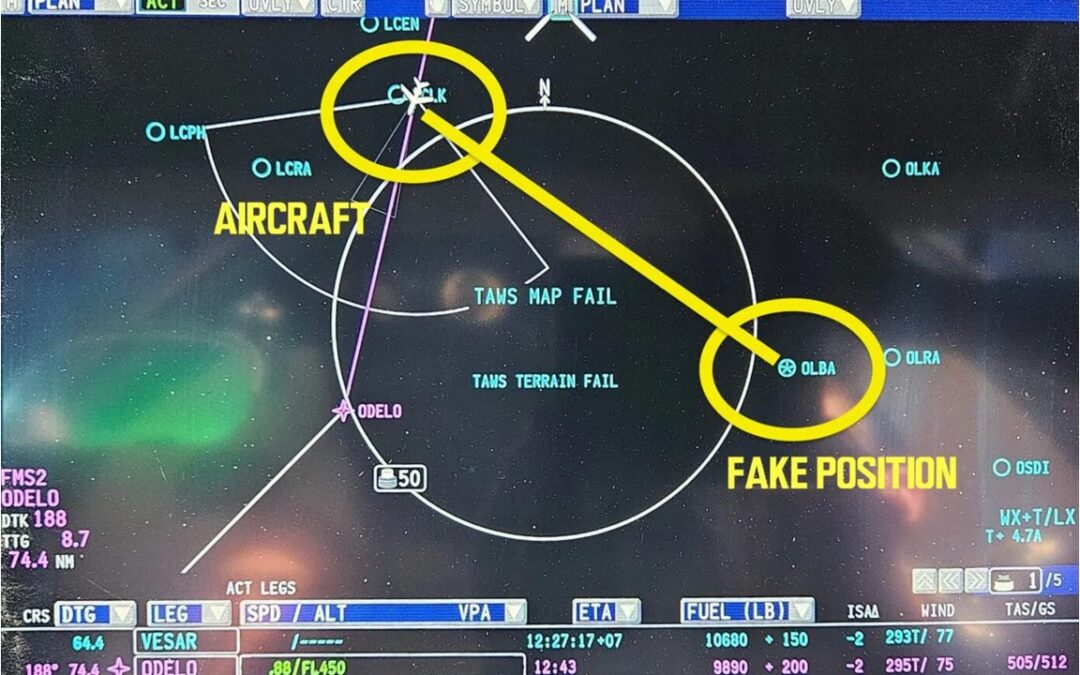Image: Ops Group
What’s New: Spoofing incidents which have seemed to be trying to lure aircraft into Iranian airspace, some have said near missile emplacements, have been found to likely be:
- Coming from just outside Tehran.
- Intended to deny GPS service rather than deceive aircraft and other users.
Why It’s Important:
- Poor navigation is always a safety issue, especially in aviation.
- These incidents have revealed that the Internal Reference System (IRS) on many aircraft, that is supposed to be an independent navigation backup for GPS, is not independent. IRS equipment has been drawn off course also.
- In 1983 poor navigation resulted in an aircraft being shot down and everyone aboard killed. Korean Air Flight 007 was shot down by the Soviets when it accidently crossed into their airspace. The incident prompted President Reagan to make GPS available for civil use.
What Else to Know:
- Any kind of interference with GPS signals can manifest as spoofing. See the apparently accidental interference that almost caused a passenger aircraft to impact a mountain.
- Sending fake GPS signals like this without trying to draw the user off course is called by some “smart jamming.” It can be more effective that “normal” jamming because receivers are likely to see the interference as valid signals and not reject them.
- Good work by student Zach Clements and Prof. Todd Humphreys at Univ. of Texas Radionavigation Lab!



